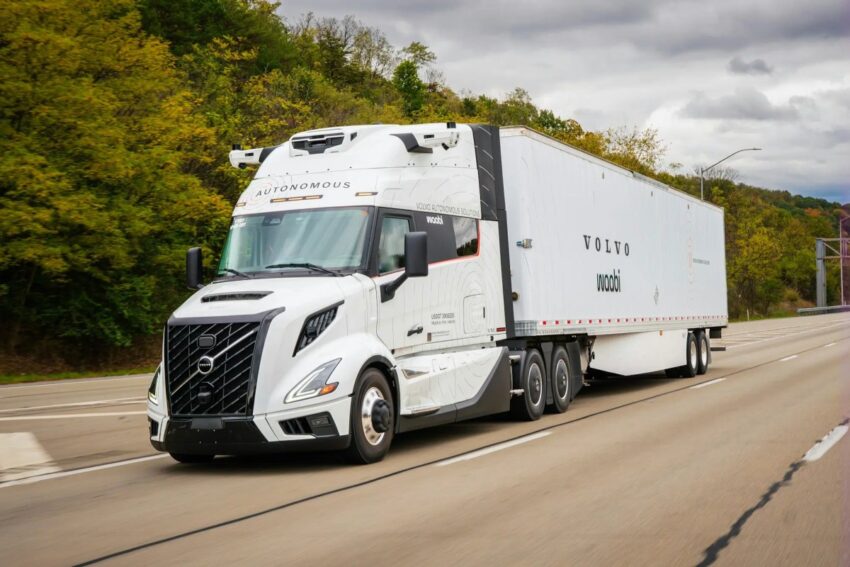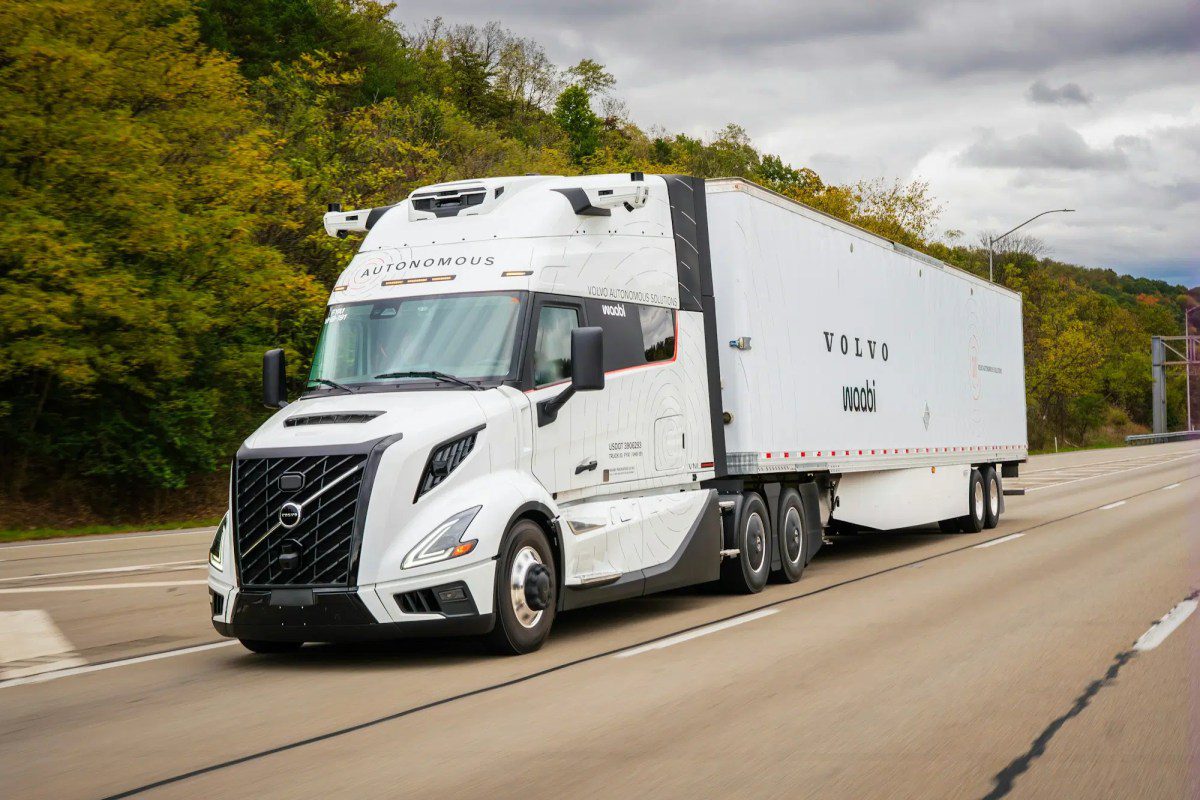
waabi unveils autonomous truck made in partnership Waabi has introduced a new autonomous truck developed in collaboration with Volvo, marking a significant advancement in the field of self-driving technology.
waabi unveils autonomous truck made in partnership
Overview of the Partnership
This announcement follows Waabi’s earlier declaration in 2025 regarding its partnership with Volvo Autonomous Solutions. The collaboration aims to create a custom-designed truck that leverages Volvo’s advanced autonomy platform, integrated with Waabi’s proprietary software stack. This strategic alliance is poised to enhance the capabilities of both companies in the rapidly evolving autonomous vehicle market.
Waabi’s Vision for Autonomous Technology
Founded by Raquel Urtasun, a prominent figure in the field of artificial intelligence and machine learning, Waabi has been at the forefront of developing innovative solutions for autonomous driving. The company’s mission is to revolutionize transportation by creating safer and more efficient self-driving systems. Waabi’s technology focuses on using AI to enable vehicles to navigate complex environments, making them suitable for various applications, including freight transport.
Waabi’s approach emphasizes the importance of real-world data in training its algorithms. By utilizing extensive datasets collected from diverse driving scenarios, the company aims to enhance the reliability and safety of its autonomous systems. This focus on data-driven development is crucial, especially in the context of commercial applications where safety and efficiency are paramount.
Volvo’s Commitment to Autonomy
Volvo has long been a leader in automotive safety and innovation. The company’s commitment to developing autonomous vehicles aligns with its broader vision of creating a sustainable and safe transportation ecosystem. Volvo Autonomous Solutions is dedicated to advancing the company’s capabilities in autonomous technology, particularly in the commercial vehicle sector.
The partnership with Waabi represents a significant step for Volvo as it seeks to expand its portfolio of autonomous offerings. By combining its expertise in vehicle design and manufacturing with Waabi’s cutting-edge software solutions, Volvo aims to deliver a truck that meets the demands of modern logistics while ensuring safety and efficiency.
Technical Specifications of the Autonomous Truck
The newly unveiled autonomous truck is built on Volvo’s existing platform, which is known for its robustness and reliability. The integration of Waabi’s software stack enhances the truck’s capabilities, enabling it to operate autonomously in a variety of environments.
Key Features
- Advanced Sensor Suite: The truck is equipped with a comprehensive array of sensors, including LiDAR, cameras, and radar systems. This sensor fusion allows the vehicle to perceive its surroundings accurately, making real-time decisions based on environmental data.
- AI-Powered Navigation: Waabi’s software utilizes advanced machine learning algorithms to enable the truck to navigate complex routes, adapt to changing traffic conditions, and optimize its driving behavior for safety and efficiency.
- Remote Monitoring and Control: The autonomous truck includes features for remote monitoring, allowing operators to oversee its performance and intervene if necessary. This capability is essential for maintaining safety standards in commercial operations.
- Scalability: The design of the truck is intended to be scalable, allowing for easy integration into existing fleets. This flexibility is crucial for logistics companies looking to adopt autonomous technology without overhauling their entire operations.
Safety Considerations
Safety is a primary concern in the development of autonomous vehicles. Both Waabi and Volvo have prioritized safety in the design and functionality of the new truck. The extensive sensor suite provides a 360-degree view of the vehicle’s surroundings, enabling it to detect obstacles, pedestrians, and other vehicles. Additionally, the AI algorithms are designed to make split-second decisions to avoid potential hazards.
Moreover, the truck undergoes rigorous testing in controlled environments before being deployed in real-world scenarios. This testing phase is crucial for identifying and addressing any potential safety issues. Both companies are committed to adhering to regulatory standards and best practices in the autonomous vehicle industry.
Market Implications and Industry Reactions
The unveiling of the autonomous truck comes at a time when the logistics and transportation sectors are increasingly exploring automation to enhance efficiency and reduce costs. The partnership between Waabi and Volvo is likely to have significant implications for the market, as it combines the strengths of both companies to create a competitive product.
Stakeholder Reactions
Industry stakeholders have reacted positively to the announcement, recognizing the potential of the collaboration to drive innovation in the autonomous vehicle space. Logistics companies are particularly interested in the operational efficiencies that autonomous trucks can bring, including reduced labor costs and improved delivery times.
Moreover, the partnership is expected to attract attention from investors and technology enthusiasts alike. The combination of Waabi’s AI expertise and Volvo’s engineering prowess positions the new truck as a formidable player in the autonomous vehicle market.
Broader Industry Trends
The development of autonomous trucks is part of a broader trend in the transportation industry towards automation and digitalization. Companies across the globe are investing in autonomous technologies to address challenges such as driver shortages, rising operational costs, and the need for more sustainable logistics solutions.
As the industry evolves, regulatory frameworks are also adapting to accommodate the introduction of autonomous vehicles. Governments are increasingly recognizing the potential benefits of autonomous technology, leading to the establishment of guidelines and standards to ensure safety and accountability.
Future Prospects
The partnership between Waabi and Volvo marks a significant milestone in the journey towards fully autonomous freight transport. Looking ahead, several key factors will influence the success of this initiative.
Regulatory Environment
The regulatory landscape will play a crucial role in determining how quickly autonomous trucks can be integrated into commercial operations. Policymakers will need to establish clear guidelines that address safety, liability, and operational standards for autonomous vehicles. Collaborative efforts between industry stakeholders and regulatory bodies will be essential to create a conducive environment for innovation.
Technological Advancements
Ongoing advancements in AI, machine learning, and sensor technology will continue to enhance the capabilities of autonomous trucks. As these technologies evolve, they will enable more sophisticated decision-making processes, improving the overall performance and safety of autonomous vehicles.
Market Adoption
The rate of market adoption will depend on the perceived benefits of autonomous trucks among logistics companies. Factors such as cost savings, efficiency improvements, and safety enhancements will influence the willingness of companies to invest in autonomous technology. Early adopters may pave the way for broader acceptance, showcasing the advantages of integrating autonomous trucks into existing fleets.
Conclusion
The unveiling of the autonomous truck developed by Waabi and Volvo represents a significant step forward in the quest for safer and more efficient transportation solutions. As the partnership continues to evolve, the implications for the logistics industry and the broader transportation sector will be profound. The combination of Waabi’s innovative software and Volvo’s engineering expertise positions this autonomous truck as a key player in the future of freight transport.
Source: Original report
Was this helpful?
Last Modified: October 29, 2025 at 7:38 am
3 views















